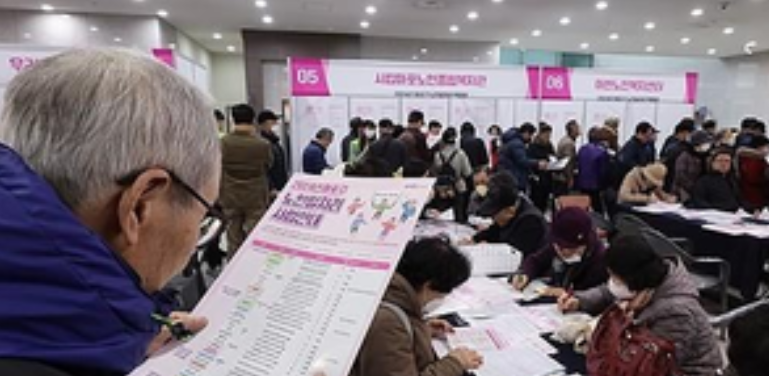Health
Nearly 20 pc of South Koreans aged 65 and older in 2024: Report

Seoul, Sep 26
People aged 65 and older took up nearly 20 per cent of South Korea's population this year amid rapid aging and the ultra-low birthrate, according to a report on Thursday.
The report from Statistics Korea, the number of senior citizens stood at 9.94 million in 2024, accounting for 19.2 per cent of the country's 51.75 million population, Yonhap news agency reported.
The proportion is forecast to surpass 20 per cent in 2025, which will make South Korea a "super-aged society," and is to rise further to 30 per cent in 2036 and over 40 per cent in 2050.
The households headed by senior citizens came to 5.66 million as of 2023, accounting for 26.5 per cent of the country's total households.
Of the 5.66 million households, 37.8 per cent were single-person households, which has been on an increase since 2015.
The number of households led by senior citizens is forecast to rise further to account for 50.6 per cent of the total households in the country in 2052.
The remaining life expectancy for those aged 65 was estimated at 20.7 years on average as of 2022, with the figure for men coming to 18.6 years and 22.8 years for women.
It hovered above the average of the Organization for Economic Cooperation and Development (OECD) member nations by around 1 year.
The income of households headed by senior citizens came to 455.4 million in 2023, and 90.4 per cent of the total elderly population received the state pension in 2022, with the average monthly amount coming to 650,000 won.
Of the elderly living alone, 32.6 per cent said they had no one to talk to, the report showed.
More than half of the elderly living alone said they have not prepared well for their later years.
The employment rate among those aged 65 and older came to 37.3 per cent in 2023, up 1.1 percentage points from a year earlier.
The comparable figure for the population aged 15 and older stood at 62.6 per cent, but the employment rate among senior citizens has been on the increase since 2015.
Of those aged 65-79, 57.2 per cent said they want to work in the future, and half of them cited financial issues as a reason, followed by 37.7 per cent pointing to joy in work.
Asked about their quality of life, 31.9 percent of the senior citizens said they were "satisfied" with their current life in 2023, down 2.4 percentage points from a year earlier, and 26.7 per cent said they felt proud of their social and economic achievement.
South Korea is facing grim demographic challenges as many young people opt to postpone or give up on getting married or having babies in line with changing social norms and lifestyles, as well as amid the tough job market and rising home prices.
The fertility rate, the average number of children a woman bears in her lifetime, came to a fresh low of 0.72 in 2023, much lower than the replacement level of 2.1 that would keep the population stable.
The agency has drawn up the yearly report on senior citizens since 2003 based on various data from the Bank of Korea, the Financial Supervisory Service, the OECD, and the National Human Rights Commission.



































